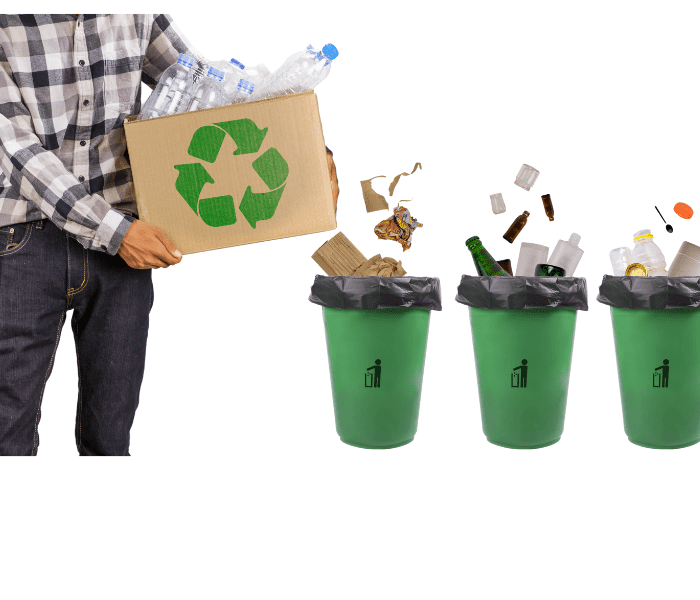Today’s lifestyle requires effective waste management. The quantity of waste produced is growing as the population grows. In Nigeria, waste management is a significant challenge due to a lack of infrastructure, inadequate funding, and poor waste management practices. In this article, we will discuss the challenges facing waste management in Nigeria and explore innovative solutions that can be adopted to reduce waste generation and improve recycling rates.
Challenges facing waste management in Nigeria
•Lack of infrastructure: Nigeria lacks the necessary infrastructure to manage waste effectively. There are no proper waste collection and disposal systems in place, and most of the waste is disposed of in open dumps, landfills, and water bodies. This practice poses a significant risk to public health and the environment.
•Inadequate funding: The waste management sector in Nigeria is grossly underfunded, which limits the capacity to implement effective waste management practices. The government needs to allocate more funds to waste management to enable the sector to develop adequate infrastructure and technology.
•Poor waste management practices: A significant challenge facing waste management in Nigeria is poor waste management practices. Many Nigerians lack awareness of the importance of proper waste disposal, and as such, they resort to open dumping, burning, and littering.
Innovative solutions to waste management in Nigeria
•Education and awareness campaigns: Educating Nigerians about proper waste management practices is crucial to reducing the amount of waste generated. Campaigns to raise awareness about the value of proper trash disposal can be organized by the government and other stakeholders.
•Recycling: Recycling is a viable solution to reducing waste generation in Nigeria. Recycling boosts the economy by producing jobs and business opportunities, lowering the need for raw materials, and conserving energy.
•Waste-to-energy: Waste-to-energy is a sustainable solution to managing waste in Nigeria. It entails turning waste into energy using a variety of processes, including anaerobic digestion, gasification, and incineration. Waste-to-energy not only decreases the amount of waste in landfills but also produces heat and electricity.
•Public-private partnerships: In order to provide waste management services, the government can collaborate with private companies through public-private partnerships. This partnership can help increase investment in the waste management sector, improve service delivery, and ensure the proper disposal of waste.
Finally, it should be noted that waste management in Nigeria presents a serious problem that needs to be addressed immediately. Innovative solutions such as education and awareness campaigns, recycling, waste-to-energy, and public-private partnerships can help address these challenges. It is crucial for the government and other stakeholders to collaborate and work together to develop a sustainable waste management system that will ensure public health and environmental protection.
By: Uzokwe Calista Ngozi Achievers of Sustainability Team Leader.





